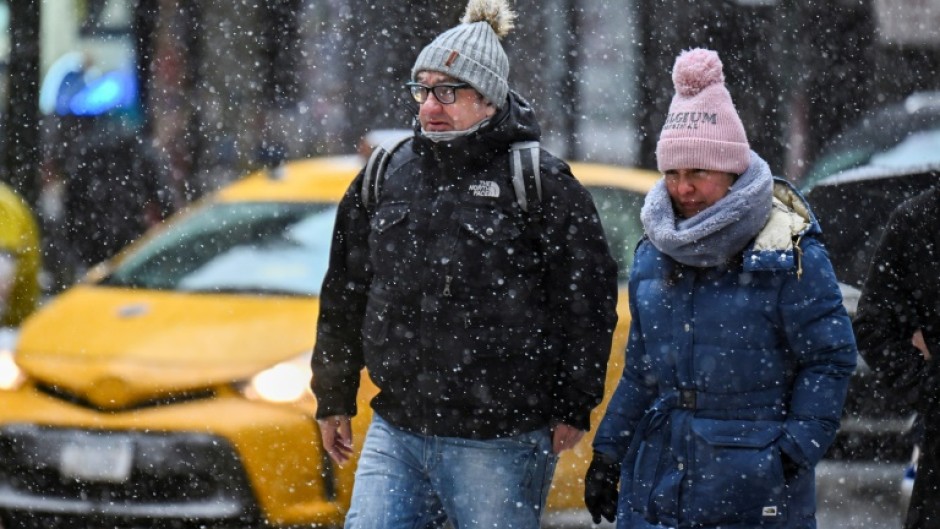NEW YORK - Americans were bracing for frigid temperatures that forecasters said could produce life-threatening conditions, with Donald Trump's inauguration expected to be the coldest in 40 years.
The bitter weather -- tied to an Arctic "polar vortex" blast -- is expected to bring nighttime lows as cold as minus 31 degrees Celsius over the weekend for some of the northernmost parts of the United States.
President-elect Trump, who takes office Monday, will see his swearing-in ceremony in Washington hit by freezing temperatures and winds of up to 30 miles per hour.
"It's going to be pretty gusty," said Marc Chenard, a meteorologist at the National Weather Service (NWS).
He told AFP that a "few inches" of snow is forecast on Sunday in the US capital, which is still blanketed in ice from a winter storm earlier this month.
Trump's inauguration -- set to draw more than 200,000 visitors to Washington -- will go ahead under chilly conditions of no more than minus six degrees Celsius, according to the NWS.
Chenard said central and eastern parts of the United States would face the most below average temperatures in the coming days, cooled by winds pushed south by a weakening of the polar vortex.
The polar vortex is an air mass above the North Pole, located high in the stratosphere. Humans dwell in the troposphere, and the stratosphere is just above it.
Chenard added that temperatures "could certainly be life-threatening" for some people who find themselves outdoors during the cold snap due to the risk of hypothermia.
While the link between global warming and heat waves is very direct, the behavior of winter storms is governed by complex atmospheric dynamics that are more difficult to study.
In December 2022, a fierce winter storm left at least 61 people dead in the United States, with some victims found outside and others in their homes or cars.
The latest temperature drop comes two weeks after parts of the country were blanketed by a large swath of snow and ice, contributing to at least five deaths and disrupting travel for millions.
Extreme weather has also struck the western United States, with Los Angeles ravaged by wildfires this month that left two dozen people dead and large areas of the city in ruins.
Conditions have since eased and firefighters have begun making progress to contain the blazes.

